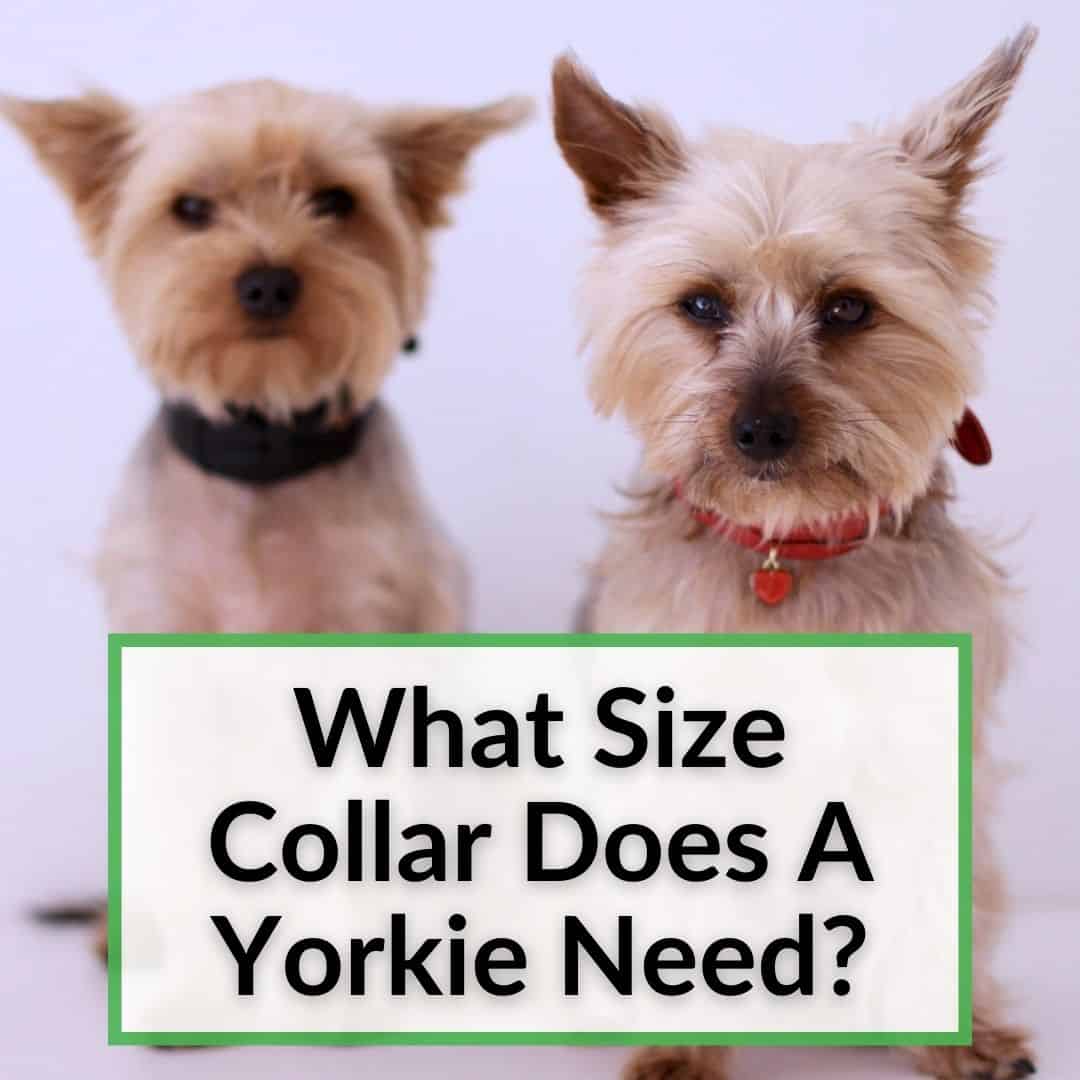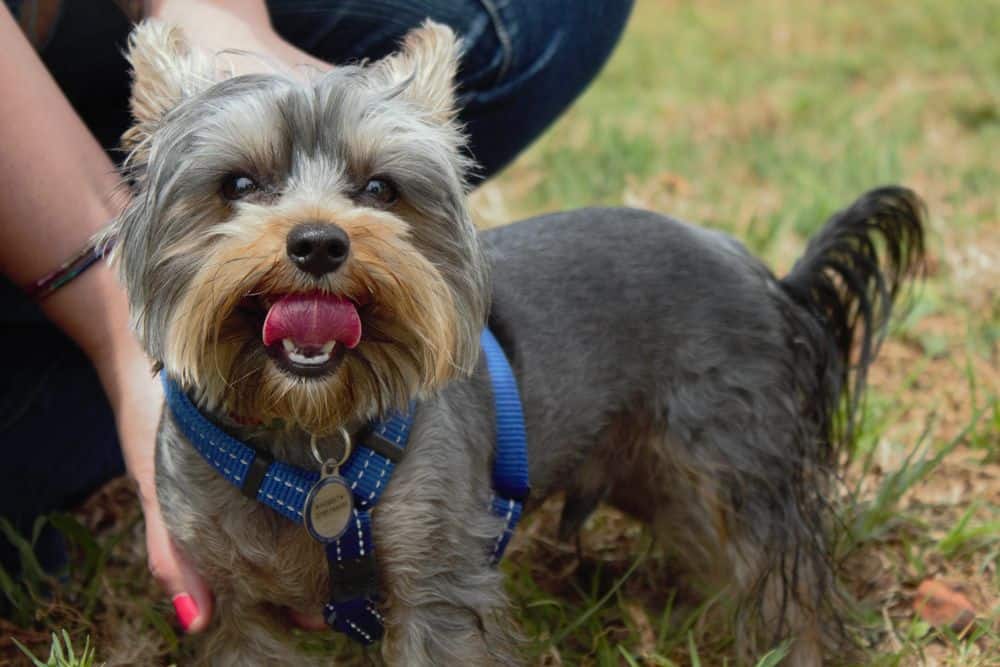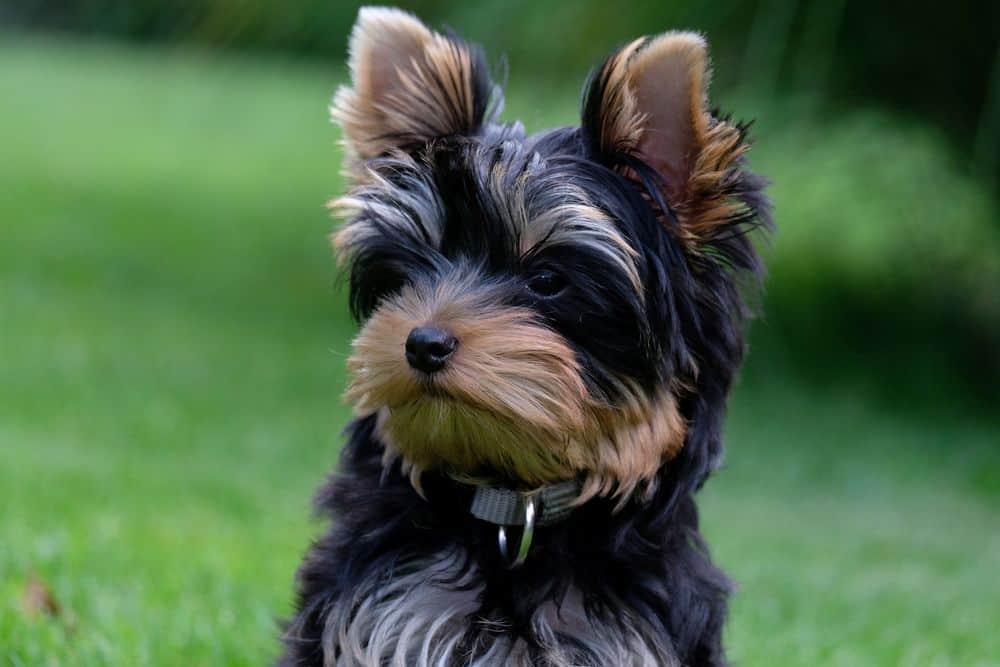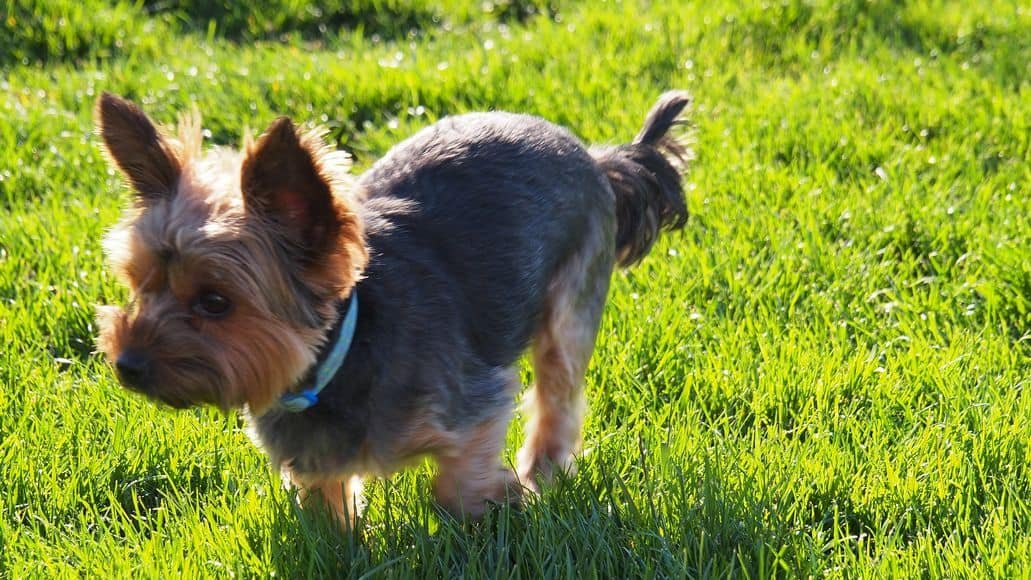
Their average height is around seven to eight inches, and they usually weigh about seven pounds.
That means they need a small collar.
We’ll cover how small below.
What’s more important is to consider whether a collar is a good idea at all.
Yorkie’s small necks are delicate and the pressure from a collar could easily cause an injury.
In fact, many Yorkies suffer neck injuries from collars.
Keep reading to learn about the correct collar size. More importantly, we’ll also go into more detail on why Yorkie collars are not ideal and what to get instead.
Contents
What Size Collar Does A Yorkie Need?
When looking for a collar, always consider the neck size of your dog. Since Yorkies are so tiny, their necks are also quite thin. Choose small sized dog collars that can match the comfort and security they need.
This article will provide you with a guide on the types of collars and the difference between collars and harnesses. After reading, you should be able to decide what kind of collar is the best fit for your Yorkie.
Collars Vs Harnesses

If you are taking your dog outside, make sure it is leashed and are walking beside you. For this, you need to have a suitable collar or harness to avoid losing or hurting your pet.
Collars usually come in a range of sizes, but are mostly pretty similar. There are different types of harnesses you can choose from. The best harness for Yorkie dogs is one that will fit snuggly, even on such a tiny body.
So which if the two is better?
We always recommend harnesses. Yorkies stay small, with small necks and delicate trachea. That trachea is only protected by a little bit of cartilage. A collar exerts pressure on this fragile spot.
Yorkies that regularly wear collars tend to suffer from neck injuries. That is why harnesses are better. They do not put any pressure on the throat. Instead, they spread it around multiple body parts, none of which are as delicate as the neck.
Types Of Collars

Should you decide to get a collar anyway, it should sit comfortably on your Yorkie’s neck. Do not get one that is too tight as it could strangle your precious pet and block its airway.
A collar that is too loose, on the other hand, will allow your dog to slip out without you noticing. It may also cause discomfort if you pull with sudden force.
For Yorkshire Terriers, an extra small collar does just fine. If your Yorkie is on the heavier side and weighs more than 10 pounds, try a size small.
If you’re not sure how big Yorkies can get, this article will help. Take your dog’s weight and neck measurements into consideration when finding a collar. For puppies, a XXS would be a better fit.
Flat Collars
The standard dog collars are also known as rolled or flat collars. They loop around the neck once and are fastened with a plastic buckle. As the name suggests, it lays flat on your dog’s neck.
These are good starters but may not be ideal for high-energy dogs. They put a lot of pressure on the neck and can also strain the eyes when dogs pull.

Electronic Collars
Electronic, or smart collars, are relatively new to the market. These collars double as tracking devices, since they have GPS installed.
Some might even have Bluetooth and WiFi features. If your dog runs away or gets lost, you will be able to find it and bring it back home.
Aside from the GPS device, electronic collars look similar to flat collars. They are generally safe to wear for Yorkies, as long as you get the right size.
Chain Collars
Chain or choke collars are made of metal. As a result, they are usually much sturdier. But they are also uncomfortable and could hurt your dog if you pull too hard.
While chain collars may be handy for training, they are not the best for everyday wear. Yorkies have fragile necks and do not have much muscular support, so these are not ideal.
Yorkie Collar Size: Conclusion
There is no “best collar” for your Yorkie. In fact, the best collar is a harness, not a collar. But if you want to go with a collar anyway, it is best to try different ones and see which one you like. All dog owners and dogs have their preferences. The most important thing is to do what is best for your dog.
Leave a Reply